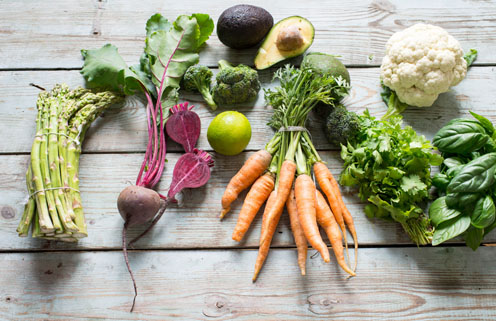Cancer and Nutrition Workshop
Learn more about how your eating habits can affect your body after a cancer diagnosis. A cancer dietitian will lead these sessions and be available to answer any questions you have.
“There is no one magic food,” says Amy Carion, RDN, a registered dietitian nutritionist at Henry Ford Cancer.
“It’s best to eat vegetables and fruits in varying colors. Include grains, beans and a variety of lean proteins. Also, decrease consumption of sugary foods that are not nutritious.”
But that may not be so easy.
During chemotherapy or radiation, some patients lose their appetite. They need to be lenient
about what they eat, Carion says. After treatment, they can focus on losing weight and eating balanced meals.
Vitamins and minerals are absorbed best when they come directly from fruits, vegetables, grains and lean meats – not supplements. Preparing a varied and balanced diet may take some effort. “But the most rewarding choices in life aren’t the easiest,” Carion says. She also recommends a daily multivitamin and daily exercise.
During the winter months when people are bored or alone in the house, there’s a tendency to eat more. Carion suggests identifying your real needs and becoming proactive. Surprisingly, one of the fastest ways to subdue hunger is to drink water. Thirst and dehydration can be confused with hunger, particularly as we age.
In any season and for any reason, aim to drink 8 or 10 glasses of water a day. Not a big lover of water, Carion says she keeps a sticky note handy to tally her daily progress.
Treating oneself with food is part of enjoying life and winter celebrations. But that’s when people can go crazy with food, Carion says.
Instead, consider the true reason for any celebration, and focus on why the people are gathered and what you’re thankful for.
Yes, it’s as good as it sounds! Get baking with Amy’s recipe of the month: Baked Pears with Ginger Snaps and Whipped Cream. Download the recipe.
Learn more about how your eating habits can affect your body after a cancer diagnosis. A cancer dietitian will lead these sessions and be available to answer any questions you have.

We use cookies to improve your website experience. By using this site, you agree to our Terms of Use. Read our Internet Privacy Statement to learn what information we collect and how we use it.